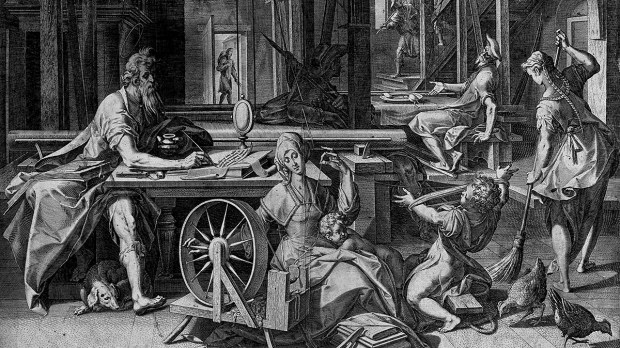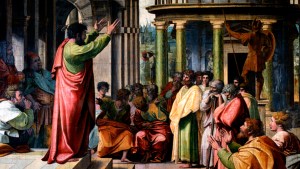Little is known about the early life of St. Paul, but what is certain is that he learned the trade of tent making while living in his hometown of Tarsus.
St. Luke refers Paul’s skill in his narration in the Acts of the Apostles.
[Paul] went to see [Aquila and Priscilla], and because he was of the same trade he stayed with them, and they worked, for by trade they were tentmakers.
Acts 18:2-3
Frederic Farrar explains in his 19th-century book The Life and Work of St. Paul that Tarsus was known for its tent making in the ancient world.
The staple manufacture of the city was the weaving, first into ropes, then into tent-covers and garments, of the hair which was supplied in boundless quantities by the goat flocks of Tarsus.
What’s interesting is that Paul learned this trade not to become rich, but to be a “back-up” profession, that could be relied upon in times of need.
The learning of a trade was a duty enjoined by the Rabbis on the parents of every Jewish boy. The wisdom of the rule became apparent in the case of Paul, as doubtless of hundreds besides, when the changes and chances of life compelled him to earn his own livelihood by manual labor.
Later on in his travels, St. Paul would use his tent making skills to his advantage, so that he would not be a burden to the community he was visiting.
For you yourselves know how you ought to imitate us; we were not idle when we were with you, we did not eat any one’s bread without paying, but with toil and labor we worked night and day, that we might not burden any of you.
2 Thessalonians 3:7-8
St. Paul’s trade served him well during his lifetime and it sustained him in his mission of preaching to the Gentiles.



